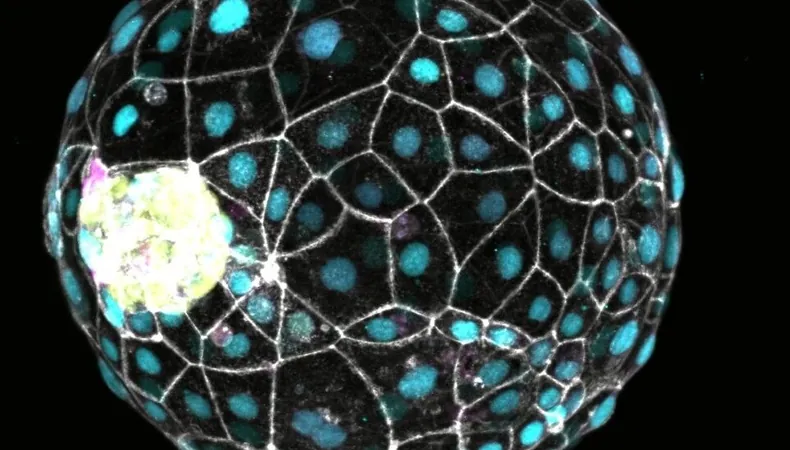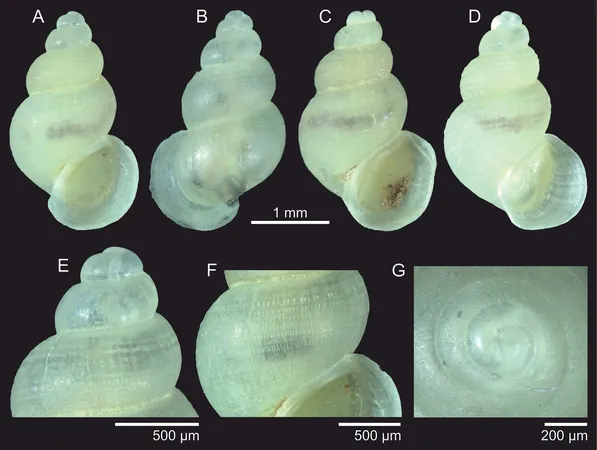
Unlocking the Secrets of Human Development: Could a "Pause Button" for Embryos Revolutionize IVF?
2024-09-27
Author: Rajesh
Introduction
In a groundbreaking study, researchers from the Max Planck Institute for Molecular Genetics and the Institute of Molecular Biotechnology (IMBA) have uncovered a hidden potential within human cells that could transform the landscape of in vitro fertilization (IVF). Historically, humans lost the ability to activate a natural reproductive mechanism known as embryonic diapause, which allows certain mammals to temporarily halt embryo development during critical stages. But now, scientists believe they may be able to reactivate this dormant capability in human embryos.
Research Findings
Published in the journal Cell, the research highlights the role of the mTOR signaling pathway in inducing a state similar to embryonic diapause in human pluripotent stem cells (hPSCs) and lab-created blastocysts, known as blastoids. Researchers found that by modulating the mTOR pathway, they could effectively slow down development, reduce cell proliferation, and limit attachment to the uterine lining.
Statements from Researchers
Aydan Bulut-Karslıoğlu, one of the leading scientists of the study, confirmed the findings: "Our results show that by inhibiting mTOR activity, we can induce these stem cells and blastoids into a dormant state — a revolutionary discovery that suggests the potential to pause human embryonic development."
Comparisons with Other Mammals
Mammals like deer and bears utilize diapause to optimize the timing of pregnancy based on environmental conditions, extending gestation for weeks or months until the right moment for implantation arrives. The question lingering was whether human embryos could similarly be coaxed into such a state. Using innovative techniques, the team made strides in understanding the molecular underpinnings of this process without experimenting directly on human embryos, opting instead for ethically sound stem cell methods.
The Biological Pause Button
Recognizing the possibility of a "biological pause button," the researchers posited that this mechanism might still be an evolutionary relic that humans no longer utilize during natural pregnancy, but which could be re-activated for medical purposes. By putting embryos in a dormant state, IVF procedures could benefit from enhanced timeframes for monitoring embryo health and optimizing conditions for implantation.
Implications for IVF Treatment
This approach could lead to higher success rates in IVF treatments, as well as provide a platform for further scientific inquiry into whether similar mechanisms exist in other mammalian species. "This research unveils a fascinating narrative about how nature's strategies might one day be harnessed for human benefit," noted Nicolas Rivron, a lead researcher associated with the project.
Future Perspectives
With the potential to pause and assess embryo development, the implications for reproductive medicine could be profound. Experts believe that by controlling the timing of embryo growth, healthcare providers may align natural and laboratory conditions for improved outcomes.
Conclusion
As the landscape of reproductive health continues to evolve, this study opens doors to innovative treatments and methodologies that could redefine the paths to parenthood. The team emphasizes the importance of collaborative research to further unravel the complexities of human embryonic development, exhibiting how diverse scientific expertise can yield transformative insights. Could this new understanding change the way we approach IVF? Only time will tell, but the possibilities are undeniably exciting—especially for those dreaming of expanding their families.



 Brasil (PT)
Brasil (PT)
 Canada (EN)
Canada (EN)
 Chile (ES)
Chile (ES)
 España (ES)
España (ES)
 France (FR)
France (FR)
 Hong Kong (EN)
Hong Kong (EN)
 Italia (IT)
Italia (IT)
 日本 (JA)
日本 (JA)
 Magyarország (HU)
Magyarország (HU)
 Norge (NO)
Norge (NO)
 Polska (PL)
Polska (PL)
 Schweiz (DE)
Schweiz (DE)
 Singapore (EN)
Singapore (EN)
 Sverige (SV)
Sverige (SV)
 Suomi (FI)
Suomi (FI)
 Türkiye (TR)
Türkiye (TR)